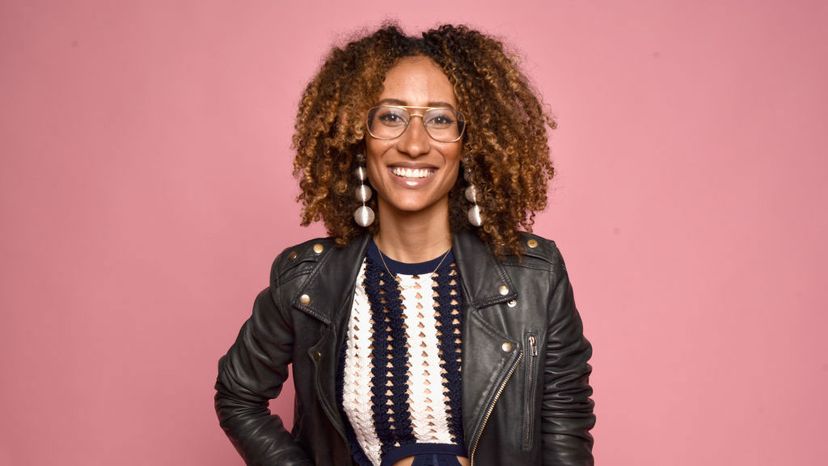 “Teen Vogue editor-in-chief Elaine Welteroth attends the 2017 Beautycon Festival in New York City. Welteroth has been responsible for the magazine’s new, more political direction. Kris Connor/Getty Images for Beautycon
“Teen Vogue editor-in-chief Elaine Welteroth attends the 2017 Beautycon Festival in New York City. Welteroth has been responsible for the magazine’s new, more political direction. Kris Connor/Getty Images for Beautycon
Teen Vogue started out as a fashion mag for young women. But lately it’s been attracting attention from readers of all ages for its passionate forays into politics and social justice. Emilie Aries and Bridget Todd, co-hosts of the podcast Stuff Mom Never Told You, looked at the teen magazine’s surprising metamorphosis in a recent episode.
The hullaballoo began in December 2016, when the magazine published the op-ed piece "Donald Trump Is Gaslighting America." Hardly the type of article you expect to find nestled in between stories on make-up, hairstyles and celebrities, the publication’s normal fare. But readers loved it.
"[Teen Vogue made] this argument that it’s OK if you care about lip gloss and also social justice," says Bridget. "It’s cool to care about both."
On the strength of that piece, Teen Vogue’s web traffic blew up to 7.7 million unique visitors that month, says Emilie, up from 3 million a year earlier. Even Dan Rather arched an eyebrow in a Facebook post, writing, "Some might consider Teen Vogue an unlikely source for a detailed examination of ‘gaslighting’ and Donald Trump … but there you have it …"
Such surprised admiration is meant to be a compliment, says Bridget, "but actually it’s illustrating a kind of underlying assumption that young women and young women’s publications can’t tackle very serious topics." And that, the two say, is positively false. Women do have multiple passions and interests. They should demand publications cater to all of them. After all, no one finds it odd that male-mag Playboy dishes up plenty of hard-hitting articles along with its soft porn.
Another surprising twist to the Teen Vogue tale is that the powerhouse behind the magazine’s change in coverage is Elaine Welteroth. In 2016, she was pushed up the chain to a leadership position at the magazine, becoming its youngest editor, and only the second African-American editor, across all Condé Nast publications. Once in her new role, the magazine made its right turn in its mix of coverage, much to the delight of readers. The positive response resulted in Welteroth being named editor-in-chief in April 2017 and the magazine amended its mission to include providing commentary on political and social topics.
But the most exciting aspect of the magazine going rogue, Emilie and Bridget say, is its move to break down the barriers regarding women and their supposed interests. In the past, women’s publications had a narrow definition of what they would cover, which topics were "women’s interests" and which weren’t. Hopefully, that kind of thinking will soon be a relic of the past.
To find more about "How Teen Vogue Got Woke" and the pushback the magazine received from its change of direction, download this podcast.
NOW THAT’S INTERESTING
A recent nationwide survey by StumbleUpon showed females actually are not using a lot of beauty products. Two-thirds of women age 18 to 25 reported using 0 to 3 beauty products in their morning hair and beauty routine. In addition, as the women got older, they used fewer products.



























